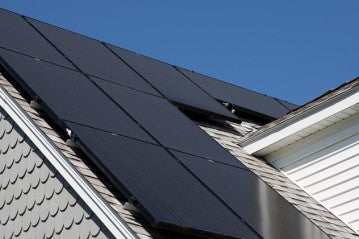
Solar energy has emerged as a reliable and sustainable source of power, offering numerous benefits for homeowners. As you consider harnessing the power of the sun to meet your electricity needs, one crucial question arises: How many solar panels do you need to power your house effectively? To find the answer, we must consider three key factors: electricity consumption, sun exposure, and solar panel power rating. By understanding these variables and making informed choices, you can determine the optimal number of solar panels for your home.
3 Factors to Consider When Deciding How Many Solar Panels to Power Home
1. Identifying Average Daily Electricity Usage
The first step in determining the number of solar panels needed is to understand your average daily electricity consumption. Review your utility bills to obtain this information, focusing on the total kilowatt-hours (kWh) used over a typical day.
For instance, if your average daily electricity consumption is 30 kWh (or 30,000 Watt-hours), we now have a baseline for our calculations.
2. Determining Peak Sun Hours
Peak sun hours refer to the number of hours during the day when sunlight intensity is strong enough for effective solar panel operation. This factor varies based on your location and the time of year. To assess peak sun hours accurately, consult data provided by reputable sources or solar energy professionals. On average, a location might experience around 4.5 peak sun hours per day. It is essential to remember that this figure may fluctuate seasonally.
3. Choosing a Solar Panel Power Rating
Solar panels are available in various power ratings, typically measured in watts (W). The power rating represents the panel's ability to convert sunlight into electricity. Higher power ratings indicate greater energy generation capacity. When selecting solar panels, consider factors such as your budget, available roof space, and efficiency requirements. For this example, let us assume an average panel wattage of 400W.
Calculating the Number of Solar Panels
To determine how many solar panels are needed to power your house, we can use the following formula:
Solar panel wattage x peak sun hours x number of panels = daily electricity use
Using the variables from our example:
400W (panel wattage) x 4.5 hours (peak sun hours) x N (number of panels) = 30,000 Watt-hours (daily electricity use)
To solve for N, divide both sides of the equation by (400W x 4.5 hours):
N = 30,000 Watt-hours / (400W x 4.5 hours)
N ≈ 16.67 panels
Since it is not possible to have a fraction of a panel, we round up to the nearest whole number. Therefore, approximately 17 solar panels would be required to meet the daily electricity needs of this hypothetical household.
Considerations and Additional Factors
While the calculations provide a baseline estimate, it is important to account for additional factors that may impact the actual number of solar panels needed to power a house.
1. Energy Efficiency: Improving the energy efficiency of your home can reduce your overall electricity consumption. By investing in energy-efficient appliances, proper insulation, and efficient lighting, you can potentially decrease the number of solar panels required.
2. Available Space: The available roof space will determine the number of solar panels you can install. If your roof area is limited, it may be necessary to select higher-efficiency panels or explore alternative installation options such as ground-mounted systems.
3. System Performance: Factors such as shading, panel orientation, and maintenance can affect the overall performance of your solar energy system. Consulting with solar energy professionals will ensure optimal system design and address any potential limitations.
4. Battery Storage: If you aim to achieve energy independence or have backup power during grid outages, incorporating battery storage into your solar energy system is essential. Battery capacity should be considered alongside solar panel requirements.
Conclusion
Determining the number of solar panels needed to power your house involves assessing your electricity consumption, understanding peak sun hours in your location, and choosing the appropriate solar panel power rating. By following these steps and considering additional factors, such as energy efficiency and available space, you can make informed decisions when investing in solar energy. Remember to consult with solar energy professionals to tailor your system to your specific requirements. Embracing solar power not only benefits the environment but also offers long-term savings and energy independence for your household.

0 Kommentare